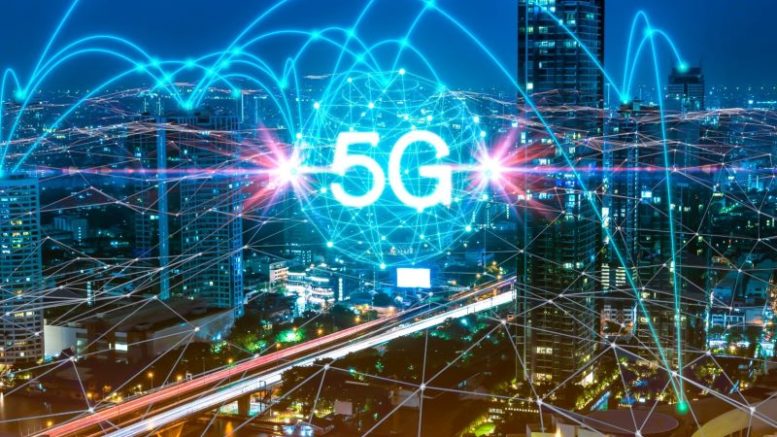It isn’t often that I write an article with such a clear answer, so here goes.
YES, because they’re already here.
(kinda.)
OK, let’s get into the meat and potatoes of this article. By now, I think pretty much everyone knows about 5G. It’s the latest and greatest cell service. I think 5G was sold as a way to get blazing-fast data. That’s true, but it’s not the most important part of 5G. The real truth of 5G is a little more complicated than that.
5G was designed as the first cell phone technology that puts data first. Older systems 3G and LTE were really designed as voice systems first, with an add-on technology to allow for data. 5G turns that on its head. 5G puts the priority where it belongs: on data transfers. This means that the whole system is designed to be more responsive and work better. Voice calls work too, of course, but just like the latest LTE systems they are just treated as another data stream.
The exciting part about 5G
The other thing that 5G really does is open up the possibility for a whole new set of frequencies. This allows for insanely blazing fast speeds, and while we may not “need” that, we all want that, right?
Traditionally, cell phone service in the US has been limited to ranges from 600-850MHz and 1900-2200MHz. It’s pretty easy for a small device to broadcast in these ranges, and we’ve been using the 600-850 range for about 80 years in one way or another. 5G allows for service in the 3,000MHz range and also in the 26,000-28,000MHz range. As frequencies go up, you need more power to get the same range. This makes it harder for cell phones to work because, in the words of one cell executive, “no one wants to carry around a car battery just to use their phone.”
Most 5G out there is not on those ultra-high frequencies. It’s often on the 700MHz and 850MHz frequencies that were used for 3G in the past. And that, my friends, means good news for everyone.
5G cell boosters today
Today’s cell boosters will work on 5G signals in the 700-850MHz ranges. In fact, any cell booster made in the last decade should work for 5G in those ranges. Since those are the most common ranges, you’re all set.
5G cell boosters in the future
We will absolutely see future boosters that work with all 5G frequencies. People want it and businesses need it. Right now there are a few of them, designed only for large industrial use. But they will make their way down to regular folks. I’m sure of it. The only question is, “when.”
And that’s the really big question. In order for these boosters to reach you, the FCC has to approve them. And right there, that’s the problem. The FCC is not only underbudgeted, it’s understaffed. Let me explain.
The FCC has 5 commissioners in the lead, plus a lot of support staff who do the grunt work. It’s the support staff that do things like review applications for FCC approval. The FCC in general didn’t get the funding it really needed for the last several years. This means that anything new has a hard time making it through the FCC approval process. Routine things like new cell phones that use the same frequencies sail through. But the tough stuff, like whole new segments, takes a lot more time.
About those commissioners…
The other problem is that “5 commissioner” part. The FCC is now setting a record every single day for “longest time without a full 5-commissioner panel.” Congress has not acted to confirm the current nominee, Gigi Sohn. Now, Sohn may or may not be the right person for the job. I’m not here to argue that. However, the previous Senate didn’t even give Sohn a hearing. This meant that the process of nominating someone else couldn’t really happen either.
Without 5 commissioners, the FCC can’t take bold action on anything. They can really only act on stuff that absolutely everyone agrees on. The FCC traditionally has 3 people from the same party as the sitting President. There are 2 people from the opposition party. Right now, though, there are 2 Democrats and 2 Republicans. So, unless it’s a slam dunk, any vote will end in a tie.
Where we need to go
I’m not here to argue for a lot of government spending. This isn’t that kind of blog. But, I’ll say, if the FCC isn’t able to function, we all suffer. If the reason it’s not functioning is financial, maybe they need a bigger budget. If it’s the fact that we still don’t have a full commission… darn it, Congress, get on that. Please. We all want our 5G cell boosters to work on all frequencies. Please let’s get on that.
This article is brought to you by Solid Signal. Shop Solid Signal for cell boosters and a whole lot more! Need help? Call 888-233-7563 or fill out the form below.





